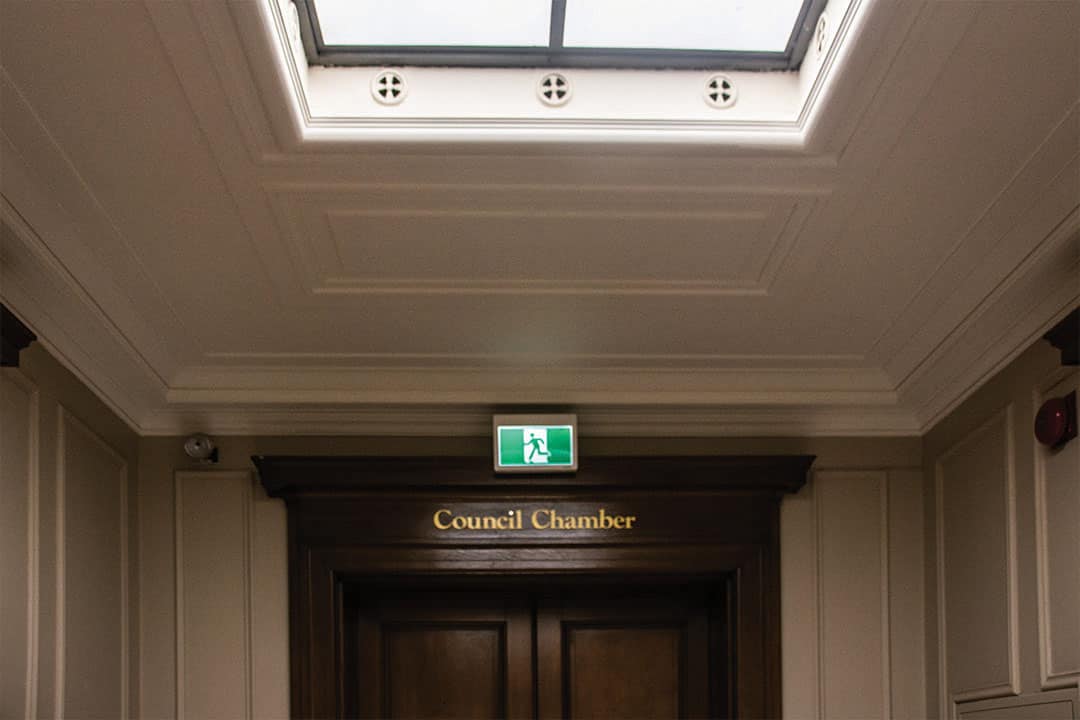During the January 18 University Affairs Board (UAB) meeting, Sandy Welsh — vice-provost, students — presented proposed revisions to the university-mandated leave of absence policy (UMLAP). The proposed revisions include preventing use of the policy when a student is at risk of self-harm and protecting visa status for international students placed on leave.
At the meeting, student leaders responded to the UMLAP updates, questioning how the Policy would accommodate Indigenous students and international students.
If passed at the next Governing Council meeting on February 15, these new revisions will come into effect on March 1.
The university first recommended the implementation of UMLAP in May 2018 and implemented the policy a month after. The policy currently gives the university administration the power to forcibly remove a student from their academic studies if they exhibit extreme behaviour that has repercussions on their own or others’ health, safety, and education.
Policy revisions
Revisions that Welsh presented include renaming UMLAP to the Supportive Leaves Policy. Welsh said that “the overall goal of these proposed changes is to reinforce the compassionate intent of the Policy… [and] reduce or eliminate concerns that it may inadvertently pose a barrier to any student accessing mental health services.”
The revisions presented by Welsh include proposed changes clarifying that “mere discomfort about a student’s behavior resulting from mental illness does not qualify as a psychological harm under the Policy,” and mandating “tracking and reporting on additional data related to the Policy.” In response to recommendations from external experts, Welsh said that a companion guide will be made available to students in fall 2023, which will explain the policy and options available to students.
If the provost invokes UMLAP, the student in question cannot live in residence. Welsh said that the student support team will ensure that students who may not be safe in their homes receive alternative housing and support students throughout their leave.
Student responses
At the meeting, student leaders — including the presidents of the University of Toronto Mississauga Students’ Union (UTMSU) and the Scarborough Campus Students’ Union — responded to Welsh’s presentation.
UTMSU President Maëlis Barre said that UMLAP “does not always account for the systemic inequities that disproportionately affect marginalized students,” such as international students that may encounter immigration and visa issues if placed on leave. She also expressed concerns for “students who don’t have a safe environment at home.”
“Will those students really get the support that they need to improve their mental health and actually finish their degrees?” Barre asked.
In response, Welsh said that the new revision of UMLAP protects the visa status of international students, ensuring that they can stay in Canada where they may have access to better health care. “A leave of any kind is considered… as still having a relationship with the university,” Welsh assured.
Jaime Kearns, president of the Association of Part-time Undergraduate Students and a member of the Anishinaabek Chippewas of the Thames community, noted that Elders are an important resource for Indigenous students. She added that the administration should work with First Nations House “to see that our healing processes are recognized and accepted not only within this policy but within the university.” Kearns emphasized that “validating our ways of healing would be a meaningful step towards reconciliation.”
In response to Kearns’ comments, Welsh said, “we do work with First Nations House, and we’ll continue to do so in the context of this policy, where it is appropriate.” Welsh also mentioned that her office is committed to expanding the mental health supports available for Indigenous students. The revisions also mention that, when relevant, the university would consult with Indigenous Elders and Knowledge-keepers to account for students’ individual circumstances.
The UTM Campus Council, UTSC Campus Council, and Academic Board will discuss the revisions before the Governing Council votes on whether to pass these revisions on February 15.


